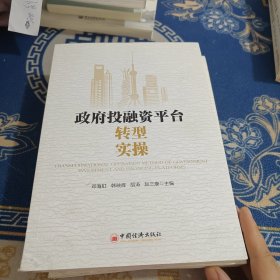
戏剧翻译研究/高校人文社科研究成果丛书
正版现货实物拍照书皮有一点磕碰书侧有红色笔画的印内页干净随机发
¥ 88 九品
库存3件
河北保定
认证卖家担保交易快速发货售后保障
作者王桂芳、李昌盛 著
出版社中国书籍出版社
出版时间2014-03
版次1
装帧平装
上书时间2024-12-11
- 在售商品 暂无
- 平均发货时间 3小时
- 好评率 暂无
- 最新上架
商品详情
- 品相描述:九品
图书标准信息
- 作者 王桂芳、李昌盛 著
- 出版社 中国书籍出版社
- 出版时间 2014-03
- 版次 1
- ISBN 9787506834834
- 定价 28.00元
- 装帧 平装
- 开本 16开
- 纸张 胶版纸
- 页数 108页
- 字数 139千字
- 正文语种 简体中文,英语
- 丛书 高校人文社科研究成果丛书
- 【内容简介】
- 《戏剧翻译研究/高校人文社科研究成果丛》第一章介绍了戏剧和戏剧的语言,包括戏剧的三个术语表达之间的异同,戏剧的二元性以及戏剧语言的特点。第二章介绍了国内外戏剧翻译研究的现状、戏剧翻译的特性、原则、标准、视角、策略及方法。第三章从语用学的角度探讨了戏剧翻译的可行性,包括戏剧语用翻译的必要性、语用学简介以及戏剧的语用翻译方法。第四章从口语性、简洁性、人物个性、潜台词和可理解性五个方面对比分析了《茶馆》的两个英译本。最终得出这样一个结论:戏剧翻译必须注意其语用价值,同时做到以读者为导向和以读者为表演为导向。
- 【作者简介】
-
王桂芳,甘肃天水人,西北师范大学文学学士,西安交通大学文学硕士。现任教于天水师范学院外国语学院。教学之余,主要从事翻译理论与实践、戏剧翻译研究。先后参加了全国基础教育外语教学研究项目、甘肃省教育厅科研项目、甘肃省科技计划项目等,主持完成了天水师范学院科研项目一项。在中文核心,省级学术期刊上发表学术论文十余篇。李昌盛,甘肃天水人,西北师范大学教育硕士,重庆师范大学文学硕士,甘肃省天水市职业技术学校讲师,研究方向为英语教学与翻译。先后发表学术论文十余篇,多次获得“优秀教师奖”,“优秀班主任奖”等。
- 【目录】
-
Chapter 1 Drama and Dramatic Language
1.1 Drama,Play and Theater
1.2 The Dualistic Nature of Drama
1.3 Features of Dramatic Language
1.3.1 Implicitness and Rhetoric
1.3.2 Colloquialism
1.3.3 Brevity
1.3.4 Individuality
1.3.5 Gestic Codes of the Language
1.3.6 Summary
Chapter 2 Literature Review
2.1 A Survey of Drama Translation Studies
2.1.1 Studies of Drama Translation in China
2.1.2 Studies of Drama Translation outside China
2.2 Particularities of Drama Translation
2.3 Principles and Criteria of Drama Translation
2.3.1 Dynamic Equivalence and Functional Equivalence
2.3.2 Equivalent Effect Translation
2.3.3 Performability Principle
2.4 Perspectives, Strategies and Methods of Drama
Translation
2.5 Summary of the Chapter
Chapter 3 Translating Performability-A Pragmatic Approach
3.1 Necessity to Apply Pragmatic Approach to Drama
Translation
3.2 Introduction to Pragmatics
3.2.1 Speech Act Theory
3.2.2 Cooperative Principle
3.2.3 Politeness Theory
3.2.4 ContextTheory
3.3 Application of Pragmatics in Drama Translation
3.3.1 Application of Speech Act Theory in Drama Translation
3.3.2 Application of Cooperative Principle in Drama Translation
3.3.3 Application of Politeness Theory in Drama Translation
3.3.4 Application of Context Theory in Drama Translation
3.4 Summary of the Chapter
Chapter 4 Translating Performability--A Comparative Case Study
of the Two English Versions of Teahouse
4.1 Colloquialism and Brevity
4.2 Individuality
4.3 Gestic Codes
4.4 Intelligibility
4.4.1 Culture-loaded Words
4.4.2 Addressing Terms and Names with
4.4.3 Beijing Dialect
Chapter 5 Concluding Remarks
Bibliography
Index
点击展开
点击收起
相关推荐
— 没有更多了 —




























以下为对购买帮助不大的评价